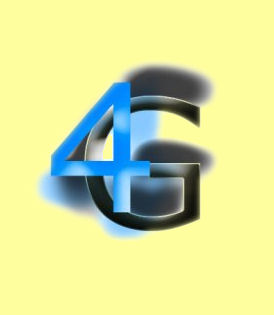4G LTE Network From UK Broadband Goes Live In London

This morning, in a London borough, a 4G LTE network was switched on, promising speedy mobile broadband
UK Broadband has switched on an LTE network in the London Borough of Southwark, incorporating South Bank, which it says is the first commercial 4G deployment in the UK.
This morning saw the first base stations using Huawei’s TD-LTE (Time Division – Long Term Evolution) product go live.
UK Broadband (UKB) also said this is the first TD-LTE 3.5GHz deployment in the world. It will offer a wholesale business model for its network, giving, for example, mobile operators such as Vodafone or O2 the chance to offer the high speed network to its mobile customers. Of course users however will need LTE compatible handsets to take advantage of this 4G network.
Network Launch
Technically, the network will use UKB’s 124MHz of spectrum in LTE bands 42 and 43 (3.5GHz and 3.6GHz). “This allows the deployment of 6 x 20MHz-wide channels that will enable UKB to deliver LTE Advanced speeds and enough capacity across the network to deliver Next Generation Access superfast broadband speeds to a large number of users simultaneously,” said the company.
 UKB and Huawei have jointly developed devices, including indoor and outdoor units for high-speed wireless broadband to homes and businesses within the coverage area. Multi-mode mobile devices supporting TD-LTE, FD-LTE and 3G will be available from September 2012.
UKB and Huawei have jointly developed devices, including indoor and outdoor units for high-speed wireless broadband to homes and businesses within the coverage area. Multi-mode mobile devices supporting TD-LTE, FD-LTE and 3G will be available from September 2012.
“We’re very excited to be switching on our first TD-LTE system in the UK using our 4G spectrum,” said Nicholas James, UKB’s CEO (pictured). “We’re working with Huawei because we believe they have the expertise and experience we need to deliver the best solution.”
“From day one we will be offering a traditional home broadband product,” explained James, speaking to TechWeekEurope. “The home LTE unit is fast and high capacity, and units will be delivered to us in March and we will formally launch the service in May.”
“LTE allows us to do it at a much lower cost than say a WiMax network,” said James. “The home LTE device has built in Wi-Fi, and a computer can plug directly into it via an Ethernet connection. In the future, we will also offer some telephony as well, but not from day one.”
“And then, in September,” he continued, “we will offer our first mobile product which is a MiFi device or dongle (similar to the one sold by 3UK). Essentially this unit creates a mobile Wi-Fi network but backhauls on the 4G network.”
James confirmed that the device will also be able to roam onto 2.6GHz frequencies and roam as well onto 3G networks, as well as other operator networks.
“It will be a really useful device that is not orphaned once outside of its 4G coverage area,” he said, adding that, in June, 2013, the first LTE compatible handsets featuring UKB’s chips will be launched.
Student Population
Why is UK Broadband launching a home broadband 4G service in a London borough that is already well-provisioned by fixed-line fibre offerings from the likes of BT and Virgin?
TechWeekEurope understands that the network coverage area has a large concentration of students and immigrants, who do not traditionally tie themselves down to fixed-line contracts. The company meanwhile confirmed it has a plan for each London borough and may expand into some of those, or even outside of London.
“We are a wholesale business and we are focusing our attention on where we know there are customers,” explained James. “As we are offering a wholesale service, we are not going head to head with other mobile operators, but we expect to offer them network capacity.”
James pointed to the fact that Ofcom warns that mobile data to grow 25 times over next five years and will swallow 4G capacity.
“We are all going to have to co-operate as part of a long-term solution to the mobile data crisis,” he said. “The fact is that we can supply network capacity cheaper than mobile operators can build it.
UKB is the UK’s largest commercial holder of radio spectrum suitable for 4G mobile services and fixed wireless platforms. In June, 2010, UK Broadband purchased spectrum that Freedom4 (formerly Pipex Wireless) had been using for a number of WiMax networks in the UK.